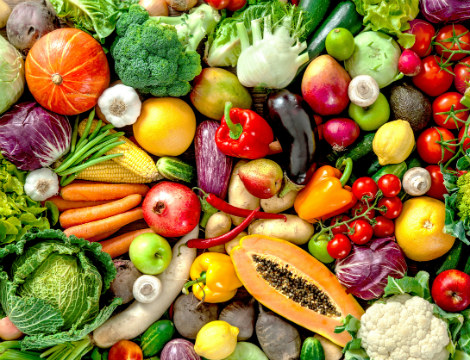Fighting Mesothelioma with Dietary Phytochemicals
Health & WellnessWritten by Tejal Parekh • Edited By Walter Pacheco
Asbestos.com is the nation’s most trusted mesothelioma resource
The Mesothelioma Center at Asbestos.com has provided patients and their loved ones the most updated and reliable information on mesothelioma and asbestos exposure since 2006.
Our team of Patient Advocates includes a medical doctor, a registered nurse, health services administrators, veterans, VA-accredited Claims Agents, an oncology patient navigator and hospice care expert. Their combined expertise means we help any mesothelioma patient or loved one through every step of their cancer journey.
More than 30 contributors, including mesothelioma doctors, survivors, health care professionals and other experts, have peer-reviewed our website and written unique research-driven articles to ensure you get the highest-quality medical and health information.
About The Mesothelioma Center at Asbestos.com
- Assisting mesothelioma patients and their loved ones since 2006.
- Helps more than 50% of mesothelioma patients diagnosed annually in the U.S.
- A+ rating from the Better Business Bureau.
- 5-star reviewed mesothelioma and support organization.
Testimonials
My family has only the highest compliment for the assistance and support that we received from The Mesothelioma Center. This is a staff of compassionate and knowledgeable individuals who respect what your family is experiencing and who go the extra mile to make an unfortunate diagnosis less stressful. Information and assistance were provided by The Mesothelioma Center at no cost to our family.LashawnMesothelioma patient’s daughter
How to Cite Asbestos.com’s Article
APA
Parekh, T. (2023, March 7). Fighting Mesothelioma with Dietary Phytochemicals. Asbestos.com. Retrieved April 24, 2024, from https://www.asbestos.com/blog/2018/01/03/fighting-mesothelioma-dietary-phytochemicals/
MLA
Parekh, Tejal. "Fighting Mesothelioma with Dietary Phytochemicals." Asbestos.com, 7 Mar 2023, https://www.asbestos.com/blog/2018/01/03/fighting-mesothelioma-dietary-phytochemicals/.
Chicago
Parekh, Tejal. "Fighting Mesothelioma with Dietary Phytochemicals." Asbestos.com. Last modified March 7, 2023. https://www.asbestos.com/blog/2018/01/03/fighting-mesothelioma-dietary-phytochemicals/.

Researchers at a university in Ancona, Italy, are optimistic about the future role fruits and vegetables will play in slowing the progression of malignant mesothelioma.
In a study titled “Regulation of microRNA using promising dietary phytochemicals: Possible preventive and treatment option of malignant mesothelioma,” researchers at Polytechnic University of Marche looked at various phytochemicals and determined these compounds found in fruits and vegetables regulate microRNAs.
Simply put, microRNAs are small coding molecules that help regulate genes. In cancer, these molecules become dysregulated, which leads to a series of negative effects such as resisting cell death, increasing metastasis and generating more cancer cells.
Finding plant chemicals that regulate these microRNAs implies mesothelioma cells could be better controlled and easier to treat, and these chemicals could perhaps even play a role in cancer prevention.
Where to Find Cancer-Fighting Phytochemicals
The Italian study discussed several phytochemicals found in foods we eat every day, and others we can incorporate into our diet.
- Curcumin: A powerful antioxidant with anti-inflammatory properties found in turmeric.
- Epigallocatechin Gallate: A well-known flavonoid found in green tea.
- Quercetin: Found particularly in citrus fruits, apples, onions, parsley, sage, tea and red wine. Olive oil, grapes, dark cherries, and dark berries such as blueberries, blackberries, and bilberries are also high in quercetin and other flavonoids.
- Genistein: An isoflavone (flavonoid) found in soybeans and soy-based foods such as soy milk, tofu and edamame.
- Pterostilbene: An antioxidant found primarily in blueberries.
- Resveratrol: A flavonoid found in red grapes, eucalyptus, blueberries, mulberries and peanuts. Red wine is particularly high in resveratrol because the grape juice ferments with the grape skins.
- Capsaicin: A compound found in chili peppers.
- Ellagic Acid: A chemical found in red fruits and berries. Raspberries are particularly high in ellagic acid, but it’s also found in strawberries, blackberries, cranberries and pomegranate.
- Isothiocyanates: Compounds such as benzyl isothiocyanate and sulforaphane are found in cruciferous vegetables, including broccoli, cabbage, cauliflower, Brussels sprouts and kale.
- Phenethyl Isothiocyanate: Another Isothiocyanate especially rich in watercress.
- Indole-3-carbinol: This phytochemical is also found in many cruciferous vegetables, but the enzymes are only activated during cooking.
- 3,3′-Diindolylmethane: A compound derived from digesting Indole-3-carbinols.
- Diallyl Disulfide: A compound found in garlic.
Ursolic acid was not researched in the study but was previously referenced as one of the only phytochemicals found to regulate microRNAs. It is found primarily in apple peels.
Further research is needed, but it is promising to know increasing our intake of plant-based foods can help us protect ourselves against mesothelioma and other types of cancer.




